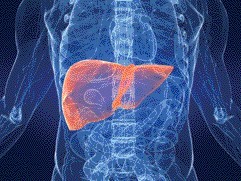
You might well have heard the expression “feeling liverish” meaning feeling a bit out of sorts especially after having eaten or drunk too much. Western doctors might well disregard the expression and consider it to be an old-fashioned and obsolete description but, in the Far East, a link is made between feeling apathetic and miserable with having a sluggish or overloaded liver.
We should all be looking after our liver. It’s one of the most complex organs in the human body and is also the largest, excluding skin.
The liver performs over 500 functions including: removing toxins, helping to control blood clotting, digesting proteins and fats and releasing bile that breaks downs fats and aids digestion.
This organ is extremely important to our ongoing health and survival and should be treated with respect. The liver performs so many vital functions that there is no way we could live longer than about 24 hours without liver function.
But how do we keep our liver healthy and working to full capacity?
First of all we can try to avoid hepatitis infections. It will be World Hepatitis Day on July 28 and the World Health Organisation will be striving to raise awareness and understanding of hepatitis – what it is and how it can be prevented. (See www.who.int)
Hepatitis means inflammation of the liver and the most common types are Hepatitis A, B and C. Hepatitis B and C are transmitted via direct contact with infected blood or body fluids. The virus can be spread very easily through sexual contact, using contaminated needles or unsafe blood transfusions. Hepatitis B and C both have serious health consequences and are chronic liver diseases. Hepatitis C cannot be vaccinated against and can lead to liver cancer.
It’s important to avoid risky behaviour such as having unprotected sex whether you are at home or travelling abroad. If you are travelling to an area where Hepatitis B is common, then you should speak to your Travel Health Advisor about vaccination.
Hepatitis A isn’t as fearsome, but it’s unpleasant and can make you feel quite unwell. It is more common in countries where sewage disposal and sanitation arrangements are not well developed, such as in parts of Africa, Europe and Asia; also Central America. If you are going to be travelling or working in any of these places, vaccination is an option.
Hepatitis A is spread through ingestion of contaminated food or water. If you put anything in your mouth that is contaminated by the faecal matter of someone already infected with Hepatitis A, then you are likely to become infected. When travelling abroad, if you have any doubts about the sanitation standards then avoid raw seafood or shellfish and don’t drink untreated water or drinks with ice in them. Vegetables and fruit should be eaten after being cooked or peeled.
It can take two to six weeks to develop the infection and most people completely recover after a few weeks and after that they become immune and cannot catch the virus again.
One of the ways to avoid Hepatitis A is to wash your hands well and often. Hand washing will also help to protect you from other infections such as the winter vomiting virus, Norovirus.
Another way to cherish your liver is to manage your alcohol intake. More and more people, including young adults, are being hospitalised in the UK and are dying as a consequence of liver disease associated with alcohol. At the least, the Royal College of Physicians advises two to three alcohol-free days a week.
Alcohol consumption is forbidden offshore, something that will benefit your liver. Back ashore, you should not “make up for lost time” by drinking too much.
Fat livers like fat bodies have to work harder and fatty deposits replace healthy liver cells threatening to reduce effective liver function. Fatty deposits on the liver are less likely to build up if we eat healthily, take exercise and moderate our alcohol intake. Having a balanced diet coupled with being physically active are important.
If you’d like to learn more about looking after your liver, why not speak to your rig medic. You can also read about maintaining a healthy liver at the British Liver Trust’s website www.britishlivertrust.org.uk. Remember that if you learn to love your liver, it will repay you by remaining a powerhouse of health supporting activity.
Kelly Paterson is an occupational health advisor/health promotion nurse at Abermed.